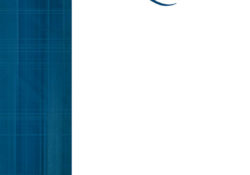
tandfonline.com har udgivet en rapport under søgningen “Teacher Education Mathematics”: Abstract Abstract To inform current debate around climate change education (CCE) in the school curriculum in England, we surveyed the views of primary and secondary teachers (N = 626). In England, direct reference to climate change in the National Curriculum is confined to secondary Science and Geography but, unrelated to their subject area, teachers favoured a cross-curricular approach with most already communicating to their students about it. Feeling comfortable delivering CCE was correlated with reported resource availability, with most teachers considering only basic literacy was a greater funding priority. Teachers supported an action-based CCE curriculum including issues of global social justice, beginning in primary school with mitigation projects such as conservation, local tree-planting and family advocacy. Local campaigning (e.g. legal demonstration) was… Continue Reading →
Like this:
Like Loading...
tandfonline.com har udgivet en rapport under søgningen “Teacher Education Mathematics”: Implementing Aistear – the Early Childhood Curriculum Framework Across Varied Settings: Experiences of Early Years Educators and Infant Primary School Teachers in the Irish Context Link til kilde
Like this:
Like Loading...
tandfonline.com har udgivet en rapport under søgningen “Teacher Education Mathematics”: Link til kilde
Like this:
Like Loading...
tandfonline.com har udgivet en rapport under søgningen “Teacher Education Mathematics”: ABSTRACT ABSTRACT This paper argues that Young and Muller’s ‘powerful knowledge’ requires a more extensive conceptualization of the relation between knowledge and practice. However, rather than focus on the ‘practice turn’ in social theory as Carlgren has suggested, it is argued that what Rouse terms a ‘normative practice’ can help explicate the specialized activities that make powerful knowledge possible. The idea of normative practice provides a basis for the systematic revisability and specialized communities that are said to underpin powerful knowledge, while also illuminating how teachers recontextualise knowledge and reconciling the role of experience with other types of knowledge in a curriculum. Normative practice provides a basis for specialized and ‘knowledgeable’ purposeful practice which suggests that knowledge is never ‘for… Continue Reading →
Like this:
Like Loading...
tandfonline.com har udgivet en rapport under søgningen “Teacher Education Mathematics”: Abstract The formal recognition of Travellers as a distinct ethnic group by the Irish State in 2017 was arguably a significant step towards redressing the pernicious and endemic institutional racism and marginalisation that Travellers have historically experienced in Ireland. It was announced by the Irish Government in October 2018 that a review of the place of Travellers in existing school curricula would be undertaken, with a view to including Traveller history and culture at primary and post-primary levels. While there are benefits associated with curricular recognition, including its capacity to potentially disrupt the reiterative reproduction of institutional racism at a formal curricular level, a significant body of literature highlights the shortcomings associated with additive curricular approaches. These include tokenism and… Continue Reading →
Like this:
Like Loading...
eric.ed.gov har udgivet: “Children’s Choices,” a project of a joint committee supported by the International Reading Association (IRA) and the Children’s Book Council, is published annually in “The Reading Teacher.” Books recommended by children are grouped by levels: Beginning Reader (ages 5-7); Young Readers (ages 8-10); and Advanced Readers (ages 11-13). Books listed at the Beginning Reader level and Young Reader level of “Children’s Choices” from 1996 through 2006 were analyzed for support of specific curriculum areas. Books related to language arts, math, social studies, and science were categorized and listed according to Louisiana content standards for prekindergarten, kindergarten, first, second, and third grade. The resulting categorized, annotated book list reflects content areas and standards, and each annotation reflects age range as indicated in “Children’s Choices.” Early childhood teachers will… Continue Reading →
Like this:
Like Loading...
eric.ed.gov har udgivet: This paper aims to provide a reflective overview of the curriculum developments in teacher education for Scotland in the Division of Technology, Department of Maths, Science and Technology Education, University of Strathclyde. A course in technology must by its very nature be frequently updated and reviewed if it is to be considered to be pertinent and relevant. This paper aims to gauge the design and technological confidence and developing capability of students. Two cohorts have completed the first two years of the four-year degree course, B.Ed Design and Technology. As the third cohort begins, progress to date is considered. The question is asked: Does the course educate for technological literacy and provide students with the creativity to educate for technological literacy with perspective, sensitivity, creativity, and confidence?… Continue Reading →
Like this:
Like Loading...
eric.ed.gov har udgivet: This collection of lesson plans is designed to help students with disabilities meet Arizona academic standards and learn different types of self-determination skills. Lesson plans are provided for students in grades K-12 with different disabilities and address: (1) oral language, including identifying homonyms; (2) reading acquisition, including teaching reading using the Fernald (VAKT) Method, making words, and fluency; (3) reading comprehension; (4) study skills, including improving test taking skills, managing daily activities, and organizing notebooks; (5) social skills, including social behavior skill development, peer relationships, and giving and receiving compliments; (6) math computation; (7) math problem solving, including balancing checkbooks; (8) written expression, including self-expression, proofreading, and writing conventions; and (9) technology, including using the Internet and team teaching with computers. For each lesson, a targeted academic… Continue Reading →
Like this:
Like Loading...
eric.ed.gov har udgivet: Thematic units, the basis of organization for this guide, work in many ways toward the dual goals of language and content area instruction. The thematic units presented here address topics of high interest to limited English-proficient (LEP) students, including: robots; using a computer data base; activities with plants; building terrariums; architecture; and cooking. In order to provide LEP students with an active role in the learning process, the units incorporate many opportunities for them to play games, participate in movement activities, enter into role playing, create art works and constructions, cook and manipulate materials. To bridge the gap between the classroom and the real world, the units incorporate field trips and other activities that provide LEP students with motivational experiences to facilitate their learning of the new… Continue Reading →
Like this:
Like Loading...
eric.ed.gov har udgivet: The authors’ goal is twofold. First, they wished to produce a theoretically-based approach to this synthesis. Child-centered programs have a long history. However, concerns about children’s achievement, and the pressure of content-specific standards, have set up a perceived conflict, in which educators believe they are being asked to abandon child-centered approaches, or, at least, to compromise and squeeze in, as one teacher put it, “Literacy on Monday-Wednesday-Friday, math on Tuesday-Thursday, and socio-emotional during our shortened play periods.” They hope that their approach, if shown to be efficacious, will serve as a model that others can use to successfully and synergistically combine these strategies so the whole is more than the sum of its integrated, not conflicting, parts. Second, and more importantly, they are producing a rigorous evaluation… Continue Reading →
Like this:
Like Loading...




